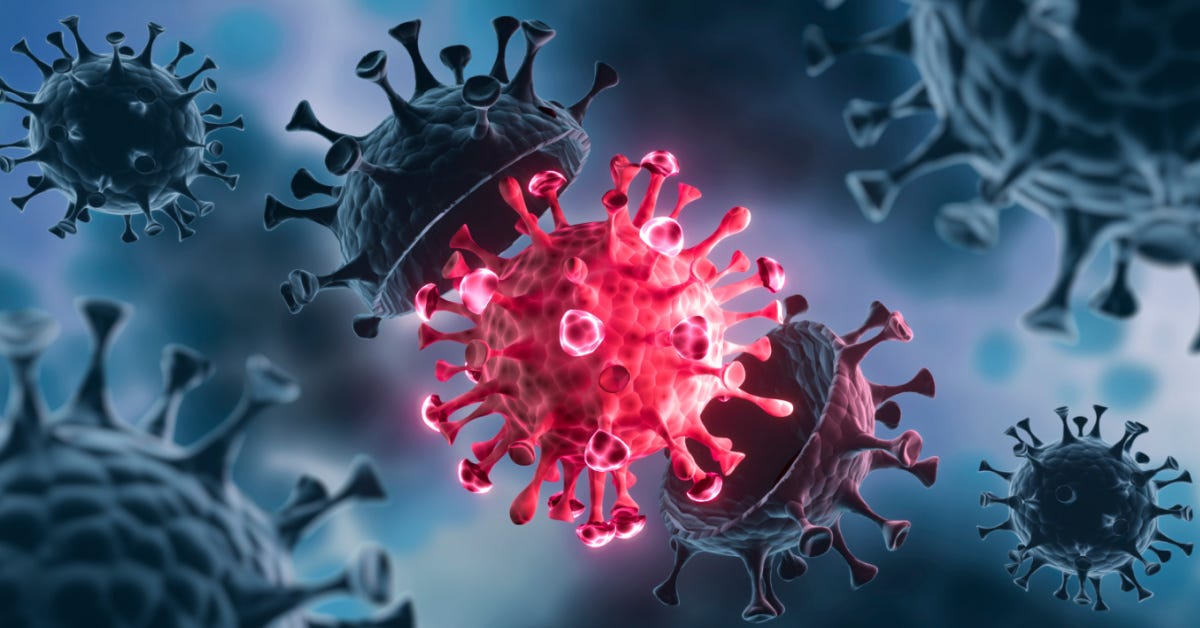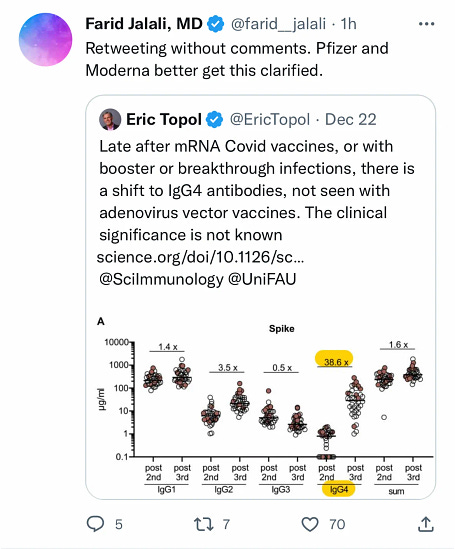|
Alarming Study Finds mRNA Boosters May Lead to Severe COVID and Autoimmune Diseases
Add this study to the list of reasons why the government should immediately halt its COVID-19 vaccination program.
New science adds to concerns a booster dose of a COVID-19 mRNA vaccine may actually increase the risk of getting severe COVID. In a peer-reviewed study recently published in Science Immunology, German researchers found that Pfizer’s mRNA COVID vaccine is causing the body to make more of a less potent antibody to COVID — displacing antibodies that attack the virus more aggressively.
In participants who received a booster dose, researchers found this phenomenon worsened, rather than reversed, and could increase one’s risk of autoimmune disorders.
In two independent cohorts of healthcare workers, German researchers analyzed anti-spike protein antibodies after SARS-CoV-2 vaccination with three doses of Pfizer and BioNTech’s Comirnaty vaccine. They found mRNA boosters induced a high level of IgG4 antibodies — a subclass known for provoking a mild immune response five to seven months after the second dose, and was “further boosted” after a third dose.
They then looked at the specific subtype of IgG antibodies (IgG1 - IgG4) people produced over time. According to the study, IgG4 antibodies made up 0.04% of all IgG subclasses shortly after the second mRNA dose. The fourth subclass started increasing several months after the primary series and reached 19.27% late after the third vaccine dose.
"Importantly, this class switch was associated with a reduced capacity of the spike-specific antibodies to mediate antibody-dependent cellular phagocytosis [the ability to ingest and eliminate pathogens] and complement deposition," the study states.
The "shift" to this IgG subclass was "not seen with adenovirus vector vaccines,” Scripps Research Translational Institute Director Eric Topol said in a tweet.
In response to Topol’s tweet, gastroenterologist Farid Jalali, who pressured the U.S. Food and Drug Administration to fast-track COVID vaccines for infants, said, “Pfizer and Moderna better get this clarified.”
According to Johns Hopkins, antibodies are made by the body when it feels like it's under attack. Immunoglobulin G (IgG) is the most common type. IgG helps prevent infections and multiplies and attacks when foreign substances enter the body. IgG has four different subclasses, IgG1— 4. IgG1 is the most common subtype, while IgG4 is the least common, accounting for fewer than 5% of all IgG antibodies under normal circumstances. A study published in 2017 found that IgG4 “plays a limited role in the immune process.”
A study in Biochimica et Biophysica Acta - Molecular Basis of Disease describes IgG4 as a “promiscuous antibody, which could be directly pathogenic, fulfill a protective role, or could just be a fortuitous marker of an aberrant inflammatory response.” Another paper describes IgG4 as an “odd antibody.” IgG4 rarely engages in phagocytosis — the process by which a phagocyte (a type of white blood cell) surrounds and destroys pathogens.
Although IgG4 can perform beneficial functions in the body, it can also be implicated in IgGr-related disease, where immune cells that produce IgG4, along with other related cells, accumulate abnormally in certain organs and damage them.
If this study is a true reflection of what’s happening with mRNA vaccines, the implications are alarming. People who receive multiple doses of an mRNA vaccine could be making themselves sicker because they’re inducing high levels of IgG4, which could lead to fibroinflammatory diseases that “affect a variety of tissues resulting in tumor-like effect and/or organ dysfunction.”
Do you think physicians are watching out for IgG4-related diseases induced by COVID-19 vaccines? Do you think they’re aware there’s even a potential connection? Perhaps the government should have required proper studies and data before they rolled out experimental booster to the masses.
You’re currently a free subscriber to Megan Redshaw's Newsletter. Upgrade your subscription to get the full experience and support Megan’s work.

